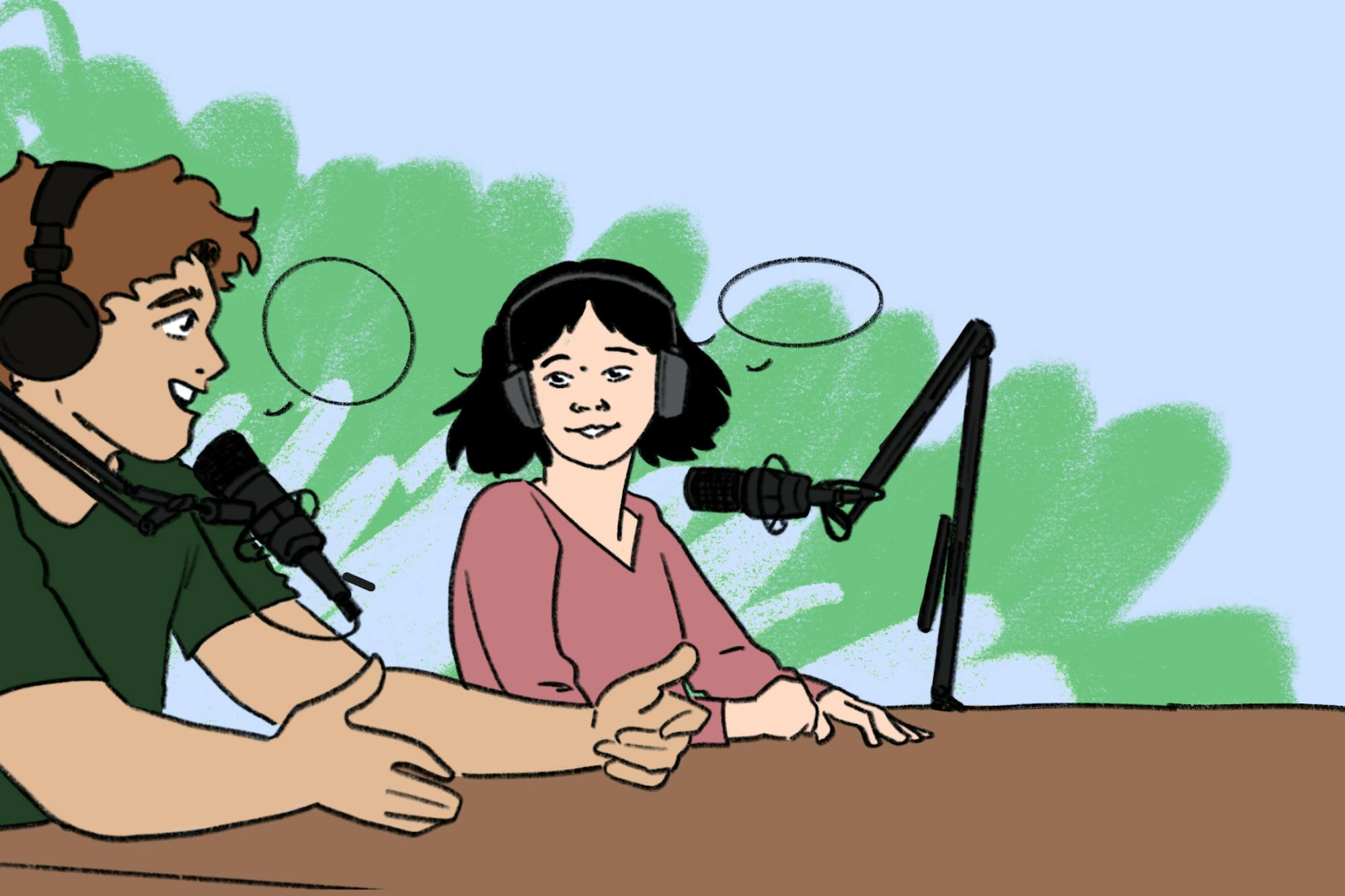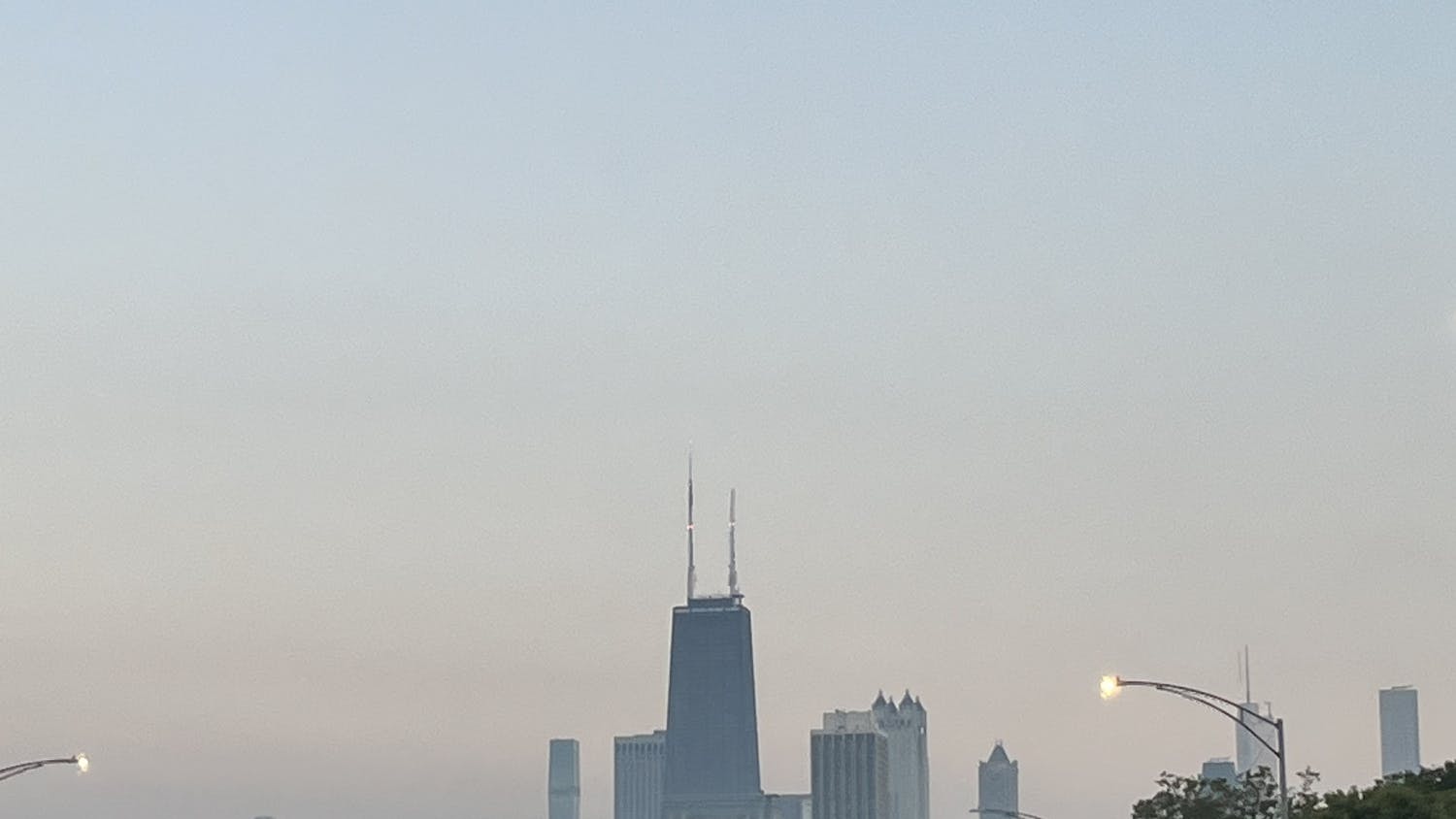CRWT 40.15, “Tell Me A Story: Introduction to Nonfiction Radio and Podcasting,” offers students the opportunity to learn the foundational skills of audio storytelling and production. Lecturer Sophie Crane, a producer at Pushkin Industries and former investigative reporter at Frontline and other public radio stations, teaches the class and cited the uniqueness of audio storytelling as a draw of the class.
“There’s something really special about radio audio,” she said. “You listen to it generally in headphones or earbuds or whatever, and it’s like literally inside of someone else's body, which is this sort of weird and cool thing that no other medium gets to do. You get to sort of accompany people while they wash their dishes or go for a drive or go for a run, in a way that’s different from other mediums.”
Adithi Jayaraman ’24, a student in the class, said the course is taught through a combination of instruction from Crane, guest lectures and hands-on experience creating podcasts and radio. Homework in the class consists of listening to podcasts, which Jayaraman describes as the “the most amazing thing.”
“[Crane] wants you to listen to podcasts as you would in normal life, [while] folding your laundry or walking around,” she said. “She wants you to really engage on a level with it as if it weren't a homework assignment.”
Crane explained that the purpose of these assignments isn’t to analyze the content of the podcasts on a granular level, but rather understand what about the podcasts makes them compelling.
“So much of being a great writer, a great radio reporter or great producer is understanding your own taste,” she said. “What's interesting to you about [each piece]? What did you notice about the way that this piece was put together?”
These assignments, combined with lectures from experts in the field of radio, help students discover their specific interests and writing styles when it comes to audio writing. Additionally, students have the opportunity to work with professional, high quality equipment and learn from experts like award-winning audio producers Saidu Tejan-Thomas Jr. and Bianca Giaever.
“I think one of the biggest things I’ve taken away is the importance of writing in a way that caters to your own voice,” Conor Roemer ’23, another student in the class, said.
Crane said she teaches students how to “write for the ear,” rather than using the same style of writing used for print media. Jayaraman described how the class emphasizes a casual writing style.
“The first script I wrote was very polished,” Jayaraman said. “And [Crane asked] … ‘would you actually say that … to your friend?’ You literally write the way you would speak to your friend. So writing for podcasts is something that all of us have kind of had to transition to.”
The class syllabus lists a few different project styles, each designed to teach students a different skill or aspect of radio and podcasting. Among them is the creation of “a turning point story about a particular character undergoing a change,” said Roemer. One of the purposes of the assignment is to “encourage students to get out and learn about the place where they live” in the context of the Upper Valley, according to Crane.
“My turning point [project] was about an immigrant from Botswana,” Jayaraman said. “She recently lost her friend who died in a fire in Boston. My interview with her was about human resilience and … how she was able to gain that … resilience.”
For another project, Jayaraman interviewed a wide range of people to produce a series of “Sonic IDs,” which are short, 30-second audio clips designed to fill empty radio time. Roemer called them “tiny little portraits of life.” Both Roemer and Jayaraman expressed that these projects taught them skills applicable beyond podcasting.
“When you’re interviewing people, you have to come up with questions and you have to press for the story,” said Jayaraman. “It really forces you to think about this person and what they’re experiencing … and challenge your own perspective. I think this class is a creative writing class, but honestly, [it’s] a philosophy class, [it teaches] life lessons— it's everything in one.”
Some students carry the skills they learn in the class forward with them into other projects. Loane Bouguennec ’25, who took the class during winter 2023, received funding from the College this term to spend her off term producing her own podcast mini series about how film allows students to critically engage with the world.
“I've been asking a lot about what people's practices are in regards to film. Like how often you go to the movie theater [and] what's the experience like? How do you critically engage with [film]? What does it mean to be critically engaged?” Bouguennec said.
This project has taken Bouguennec across the world. She spent a week at the Sundance Film Festival, another in New York, and is currently spending a month and half in Paris working on her mini series.
“Unless you’re actively reading the news, you're stuck within the Dartmouth bubble,” Bougeunnec said. “Podcasts are just really helpful while I'm on campus in keeping me in touch with reality.”
“The class is just a cool, unique experience that I would only get in college,” Jayaraman said.




